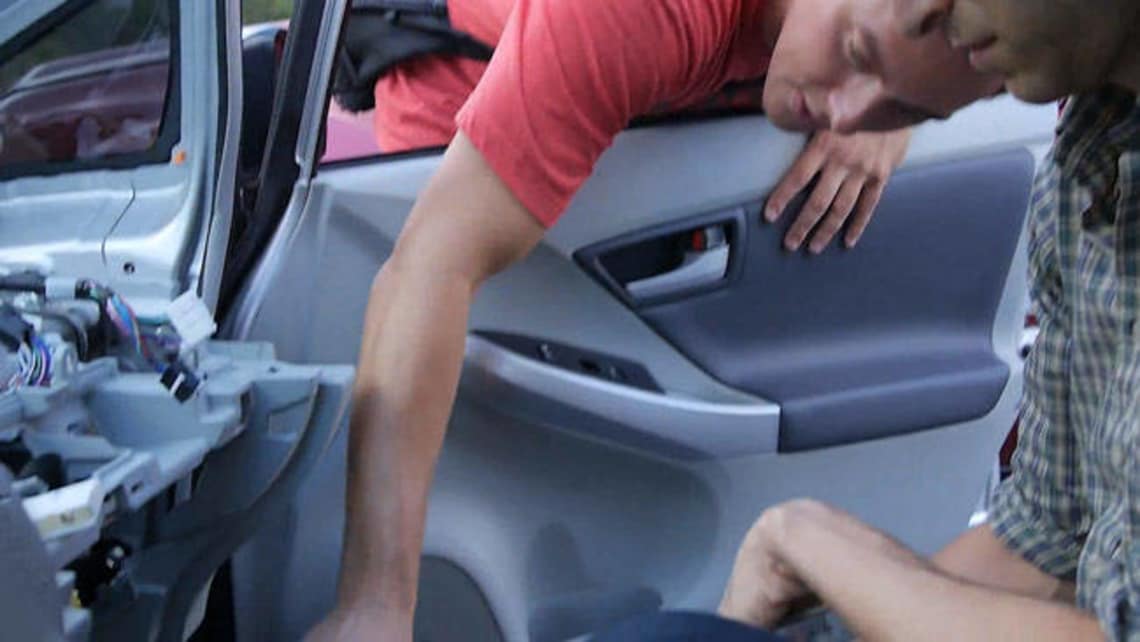
Your car can be hacked. Here's how

A team of computer security experts aims to explain exactly what can be accomplished when it comes to hacking a car. Modernvehicles are fitted with all sorts of computers, and any computer can be hacked if the person doing so knows what they're up against.
To prove their point, the two shared a unique driving experience with Forbes' Andy Greenberg. The resulting drive is rather eye-opening.
Sitting in the rear seat, the two hackers showed Greenberg a slew of hacks they could perform. Randomly removing the brakes, getting the steering wheel to jerk and tugging on the seat-belt tensioner were just a few of the many items the duo could affect.
Additionally, the display could be altered so that it read that the fuel tank was full when it was actually down to one quarter remaining. It all comes off as rather startling, and it's easy to see how someone's drive could turn ugly quickly.
Still, this type of hack was done with the hacking team in the car and wired into the computer systems. A remote attack may be a bit more difficult. That isn't to say it's impossible, of course.
The hacking team will reveal their findings on car hacking at the upcoming DefCon event in Las Vegas. There, other "white hat" hackers can pore over the information and find ways for carmakers to button up their security systems. It's not just the Toyota in the video that can hacked, but pretty much any car with a modern computing system buried beneath its skin.
You can bet that representatives from many of the car manufacturers will be paying close attention to the information presented at DefCon.
Meanwhile, a British High Court judge has banned three scientists from presenting a research paper that shows security flaws in the immobilisation system chip used by several car brands. Volkswagen and French defence group Thales sought the judgement to stop the paper being presented at a conference in August.
The research team -- University of Birmingham computer science lecturer Flavio Garcia, and Radboud University Nijmegen, Netherlands, security researchers Baris Ege and Roel Verdult – had informed the chipmaker of the research nine months ago so it could take steps to improve the security of its product. They also asked at the time that the chipmaker inform the car brands that purchase the chip.








Comments